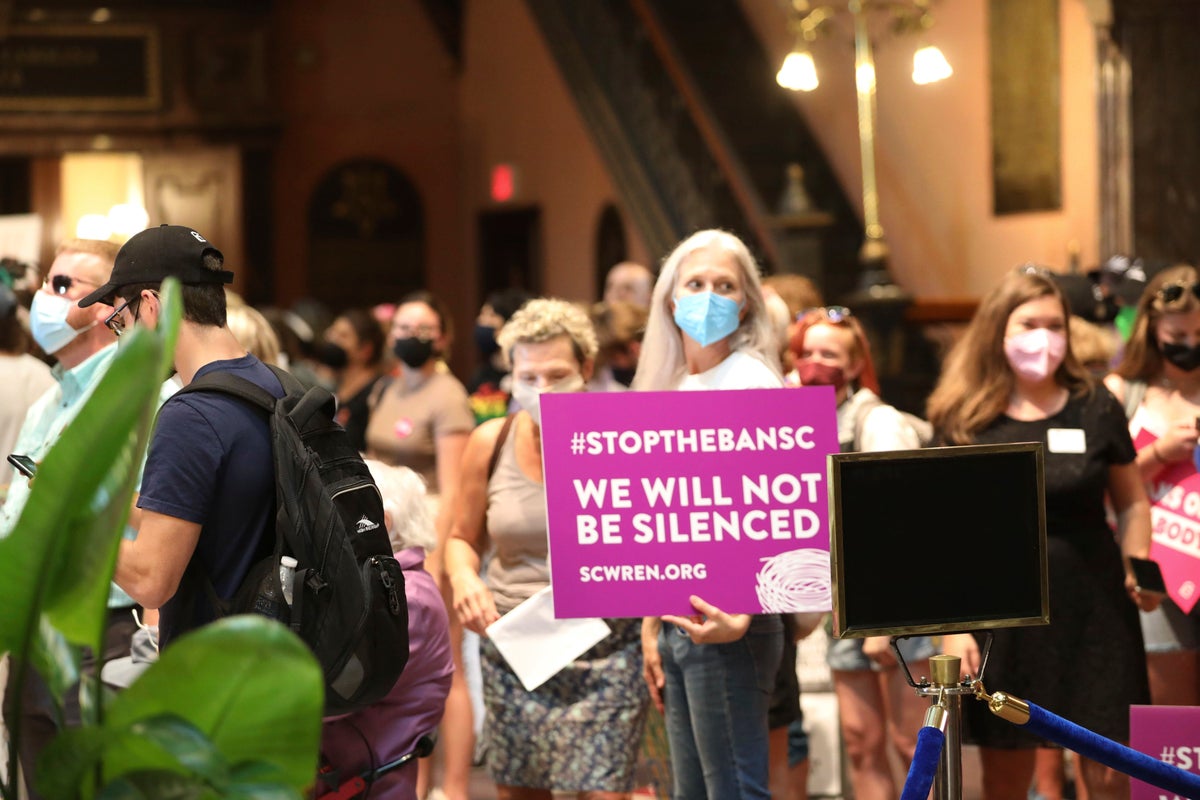
The Supreme Court of South Carolina has struck down the state’s anti-abortion law banning the procedure at roughly six weeks of pregnancy, declaring the law an “unreasonable” and unconsitutional restriction of a woman’s right to privacy.
The court’s majority decision comes two years after the adoption of the so-called Fetal Heartbeat and Protection from Abortion Act, which prohibits abortion at detection of early signs of what can be considered fetal cardiac activity, which generally begins at about six weeks of pregnancy – before many people know they are pregnant.
Restrictions on abortion care “must be reasonable and it must be meaningful in that the time frames imposed must afford a woman sufficient time to determine she is pregnant and to take reasonable steps to terminate that pregnancy,” Justice Kaye Hearn wrote in the majority opinion on 5 January.
“Six weeks is, quite simply, not a reasonable period of time for these two things to occur, and therefore the Act violates our state Constitution’s prohibition against unreasonable invasions of privacy,” he added.
Each of the five justices separately wrote decisions in the case, but three justices agreed that the law violates the state’s right to privacy provision.
“Few decisions in life are more private than the decision whether to terminate a pregnancy. Our privacy right must be implicated by restrictions on that decision,” Justice Hearn wrote.
Last year, state lawmakers failed to adopt an even more stringnet anti-abortion law that would outlaw nearly all abortions in the state, two months after the US Supreme Court’s landmark decision to strike down the constitutional right to abortion, triggering nationwide efforts among anti-abortion lawmakers to ban or severely restrict access to care.
The six-week ban, however, took effect shortly after the Supreme Court ruling in Dobbs v Jackson Women’s Health Organization on 24 June.
Planned Parenthood South Atlantic, Greenville Women’s Clinic and two physicians filed a lawsuit to block the law from taking effect.
“The court’s decision means that our patients can continue to come to us, their trusted health care providers, to access abortion and other essential health services in South Carolina,” according to a statement from Jenny Black, president and CEO of Planned Parenthood South Atlantic.
“This is a monumental victory in the movement to protect legal abortion in the South,” she added. “Planned Parenthood South Atlantic and our partners will continue our fight to block any bill that allows politicians to interfere in people’s private health care decisions.”
Without constitutional protections affirmed by decades-old precedents from Roe v Wade and Planned Parenthood v Casey, which were overturned by the US Supreme Court in June, more than a dozen states have effectively outlawed abortion in nearly all instances.
That ruling also opened legal battles across several states, as abortion rights proponents and civil rights groups seek to block abortion restrictions by relying on state constitutional protections.
Emboldened by 2022 election victories, anti-abortion state legislators across the US are preparing to introduce additional restrictions, from regulations on abortion drugs to criminal penalties against providers, adding further obstacles to care for millions of Americans. Efforts in Congress for sweeping anti-abortion legislation on the national level, meanwhile, is likely to go nowhere, as the GOP regroups after midterm elections and recovers from the volatility of hardline anti-abortion rhetoric.


.jpg?w=600)




